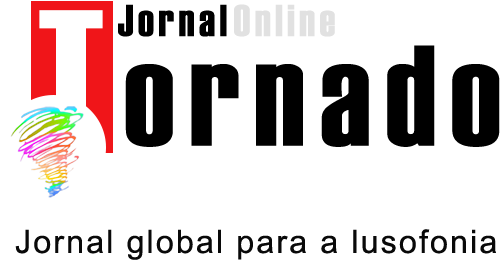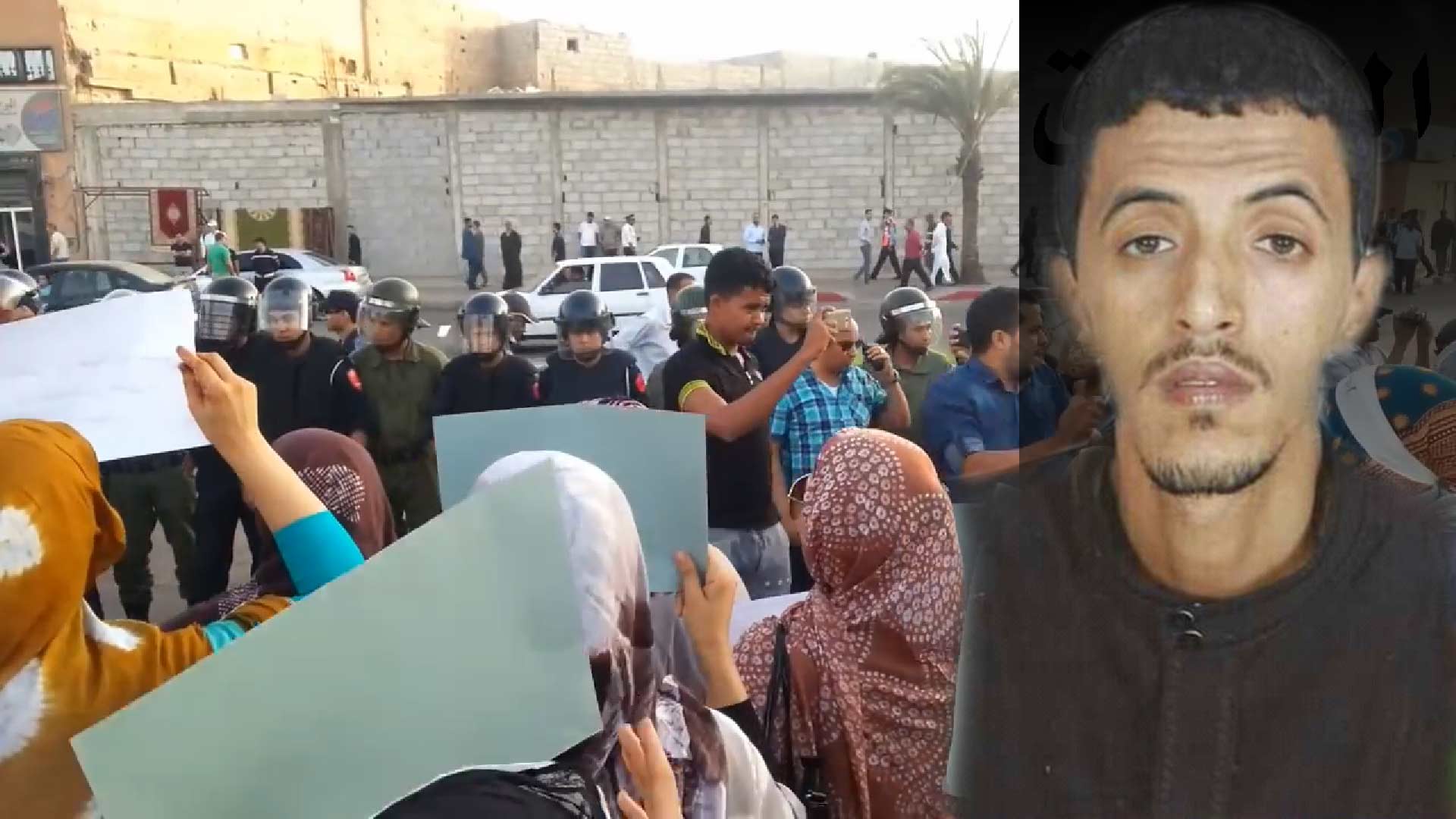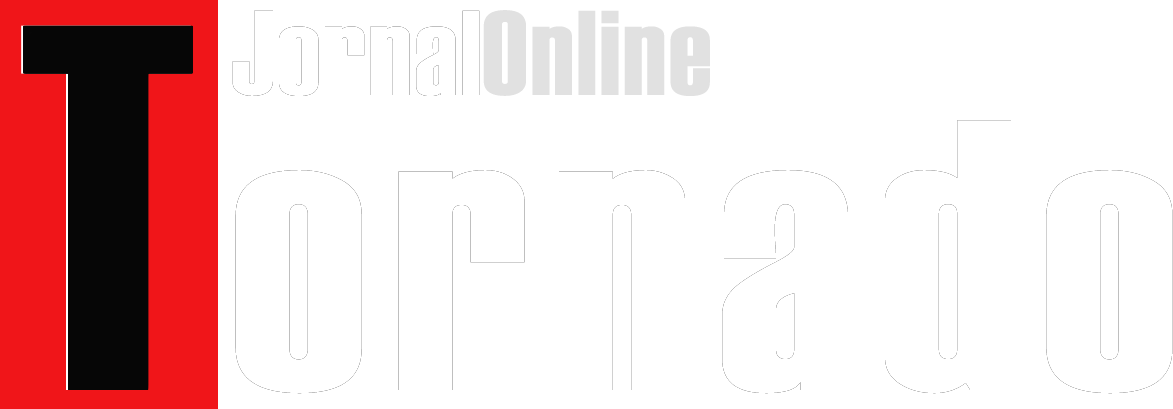Mohamed Ali Massik, a 37-year-old Saharawi, died in September 2016 after a long suffering and two years of intentional medical malpractice by the Moroccan state which did not treat his kidney disease , reports his brother Malainine Massik.
Mohamed was a young graduate and as many of his companions peacefully protested for the right to employment in the occupied territories of Western Sahara.
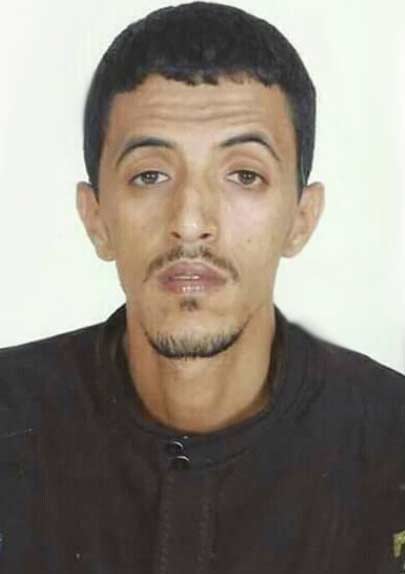
The movement of young unemployed Sahrawi with higher degrees has gained increasing expression in the last six years, with peaceful demonstrations demanding the right to employment.
Morocco illegally occupies the greater part of the territory of Western Sahara since 1975 when it invaded the Spanish colony and transformed it into an open-air prison and implemented a system of social, economic and political apartheid. Young Sahrawi find no job while Moroccan settlers receive incentives to settle in the territory with higher salaries, job opportunities and reduced taxes. This is not a new technique and it has been used over the centuries to force demographic change, in this case to eradicate and impoverish the Saharawi population.
One aspect of the occupation regime is the differentiation in access to medical care for Saharawi. This is a fact for all Saharawi but it is aggravated when it comes to participants in peaceful demonstrations that have been attacked by the authorities, children who have been abused by authorities and Saharawi identified as “human rights activists” or defenders of self-determination.
Diagnosed since 2000 with liver cirrhosis Mohamed, was admitted to Hassan II Hospital in El Aaiun in 2014. He was in life threatening condition and the necessary medical care was never provided by the Moroccan state.
The cases of more serious diseases are not treated in hospitals in occupied Western Sahara due to the lack of means and specialists, the patients in these cases are sent to hospitals in Morocco.
When his health deteriorated badly, the young Saharawi should have been sent urgently to the Hospital in Marrakesh, but the means of transport were not made available by the Moroccan authorities in a timely manner.
In 2016 dozens of young people demonstrated in El Aaiun demanding that Mohamed Ali Massik be saved and had medical attention only after this protest action he was transferred to the Hospital of Marrakesh but it was already too late. The family was denied a medical report on the cause of death from the clinic where Mohamed died.
Mohamed’s family has submitted numerous complaints to the various official bodies over the years, from the judicial system to the Moroccan National Council of Human Rights and the mediation institution, but no investigation was started.
Malainine denounces that many of the evidence required for the prosecution of his brother’s death were not facilitated by the various hospitals, which refused to give copies of Mohamed’s medical files. The family however, was still able to gather sufficient evidence of medical negligence and discrimination against which the young man was subjected to.
This situation is not unique and the medical negligence suffered by the Saharawi in the occupied territories has been denounced by various Saharawi and European organizations.
The El Mahdi hospital for instance is known as the “Butcher shop” or the “Experiences Laboratory”.
The presence of uniformed and plainclothes policemen inside the hospital is significant, and it is considered normal to be kidnapped from the hospital to the police station.
The trip to the hospital is the last resort, the Sahrawi often resort to traditional medicine and to cure their patients at home because of the insecurity of going to the hospital.
Hmad Hamad, vice president of the CODAPSO (Committee to Support Self-Determination of the Western Sahara People), has similar reports and in 2016 explained:
“In order to understand the health situation in the occupied territories, I have to explain that doctors and nurses are like police officers. When we go to the hospital, instead of asking us about the complaints or seeing the injuries, they start questioning us about our participation in the manifestations and resort to violence and insults.
They treat us like this because we are Saharawi and because we want our land, we are not criminals, we just want the UN resolutions to be implemented and that the referendum is held and that we have our country.
When a Sahrawi dies in the hospital, and if the family requires an autopsy, this is considered an insurgency act that has disastrous and undesirable consequences, such as persecution.”
When we talk about this issue, everyone agrees, Abdallah, one of the young people we interviewed suffers from diabetes but does not have medical attention. He does not know if he has type I or type II diabetes, the paper with the medical information he received when he was diagnosed in the hospital is a simple paper sheet with the Hospital logotype with his name and diagnosis: diabetes. – with a stamp and a signature nothing more.
He does not make tests because he has no money and occasionally takes the prescribed medicines, but only when he has money. Like him, all Sahrawi interviewed have reports of going to the hospital where they are not diagnosed, are subject to unnecessary painful treatment, and intentional medical negligence.
The family of Mohamed does not give up, they continue their fight for the truth. They want justice and an independent investigation. They have addressed the United Nations by submitting a complaint to the human rights mechanisms, and are exhausting the legal channels in Morocco.
They want justice, but above all they want to denounce the serious human rights violations. “The world does not know this … our cause is just, but unfortunately the world does not know this,” says Malainine, who has been a victim of constant persecution by the Moroccan authorities and was even beaten by police agents since his brother’s death.
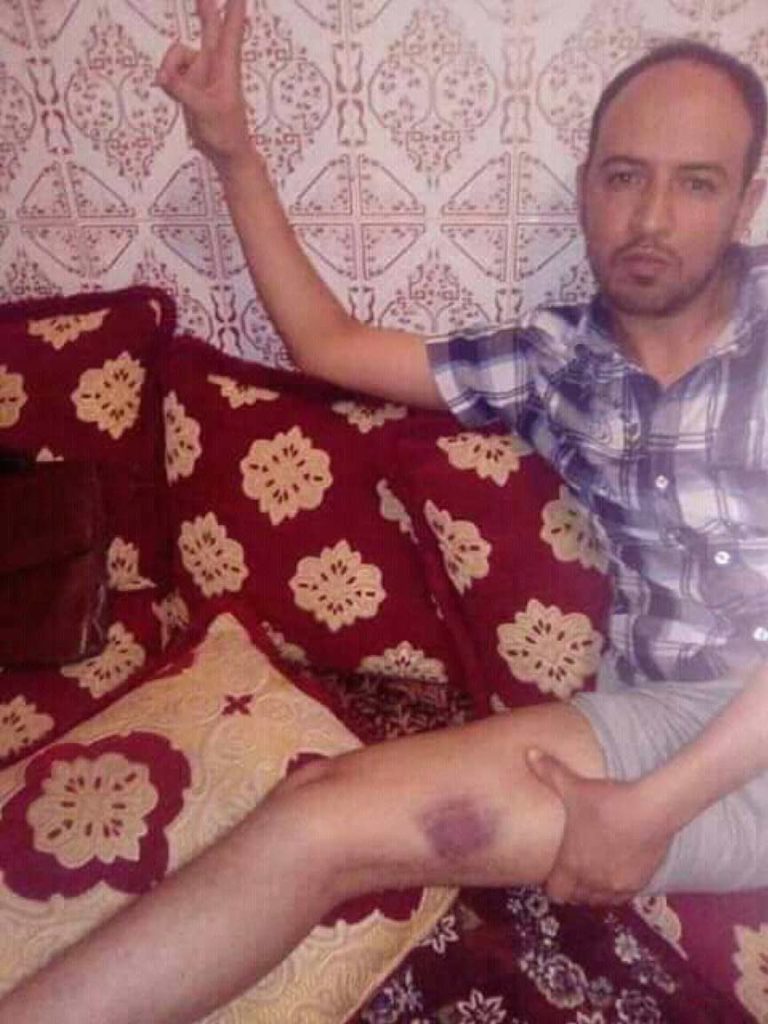
“In November 2016, the Moroccan authorities offered jobs to my family so that we would abandon our struggle for our cause.” We refused, even though we are a poor family, but human life is more important than money, the investigation into the medical malpractice that caused my brother’s death is more important.”
On the night of March 28, Malainine went to the streets again with his companions to claim his right to work, but also to pay homage to his brother Mohamed and Brahim Sikka, a young Sahrawi student and political prisoner who died on 15 April 2016 following a hunger strike that began after he had been beaten, insulted and interrogated in protest of the injustice and humiliation suffered, he also suffered medical malpractice and his case was never investigated (Muere el sindicalista y preso político saharaui Brahim Saika después de ser torturado y pasar varios días en huelga de hambre).
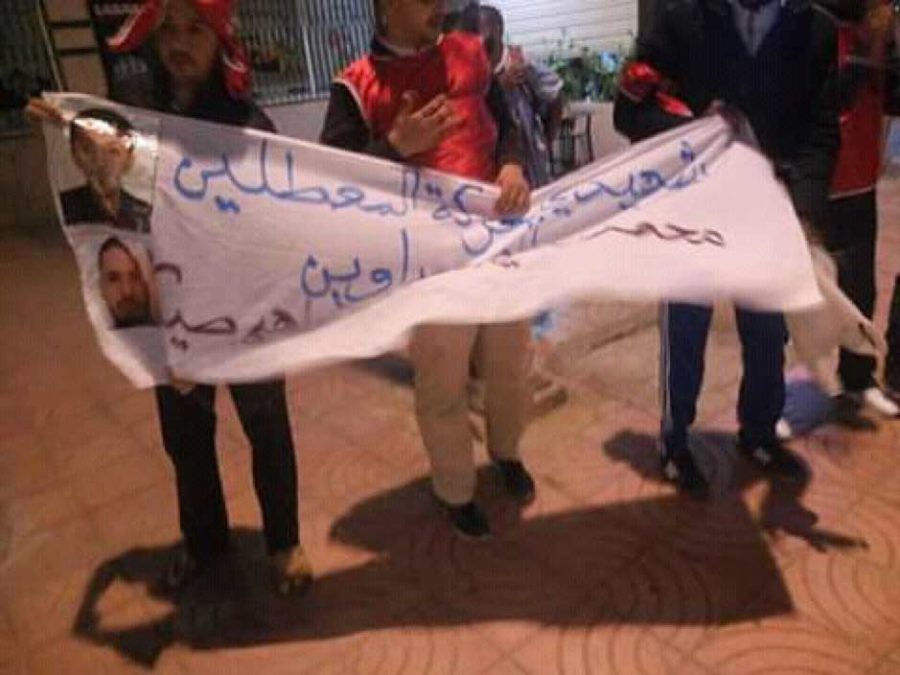
The Moroccan occupation nowadays does not kill with bombs, but it kills in other ways, we do not have medical assistance, we are impoverished, marginalized, we have fewer marriages and fewer children, when we are pregnant we are afraid to go to hospitals, many of my friends have difficulty to conceive. Why are we not news? Why does not anyone talk about us? ” says Salka.
Like Malainin, Salka yearns for truth and justice and for the eyes and ears of the international community, but they are not alone countless Saharawi families in the occupied territories have lost their loved ones due to medical neglect in the past 4 decades.
Videos


